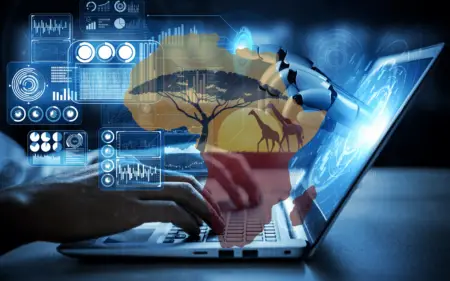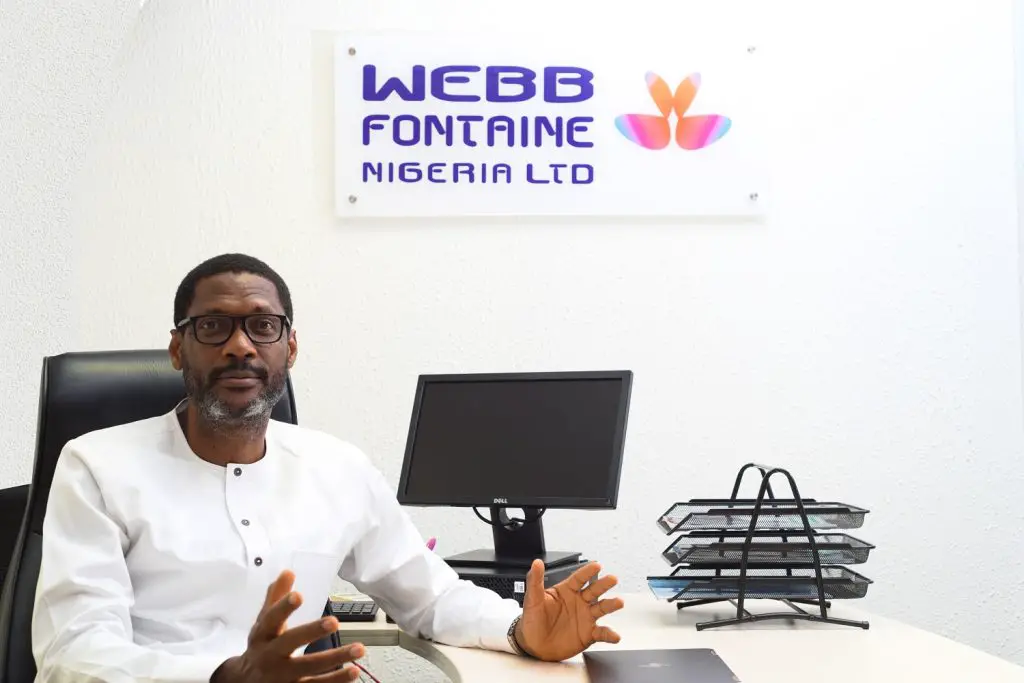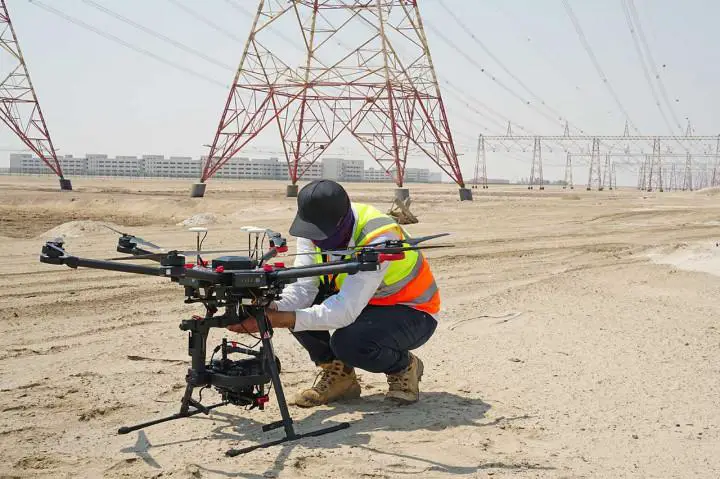- Africa’s new dawn: the rising role of digital and AI in agriculture
- Can Dangote Refinery Transform Africa Energy Ambition
- Gallup Survey: 80 per cent of Kenyan Workers Are Disengaged and Seek New Opportunities
- Madagascar Man Freed from 5KG Tumor After 15-Year Struggle
- How women in Africa are perceived and treated
- Sugar consumption in Kenya to Increase to 1.23 Million Tonnes
- Can Somalia and Turkey Oil deal Bring Change in Somaliland
- Remittances to Kenya dropped to $371.6 million in June, marking a six month low
Browsing: AI
- Gen AI can improve efficiency and effectiveness in various financial sector applications.
- In the next three to five years, gen AI has the potential to revolutionize banks.
- AI can even plan overall strategy and banks to adopt or be left behind.
Generative AI is the new frontier for scientific developments and the financial sector should not be left behind. Artificial Intelligence (AI) is now used by financial institutions to model analytics, automate manual tasks, and synthesize unstructured content, sector experts say.
“In the next three to five years, Gen AI has the potential to revolutionize banks…changing entire risk and compliance functions,” notes Rahul Agarwal, Andreas Kremer, Ida Kristensen, and Angela Luge in an article published by advisory firm McKinsey and Company.
In their paper, How Generative AI Can Help Banks Manage Risk and Compliance, the researchers and financial experts describe how Gen AI can improve efficiency and effectiveness …
- Artificial Intelligence (AI) plays a crucial role in Africa’s socio-economic and political development.
- Currently, tech giant Google is funding the deployment of AI in Africa.
- Google is exploring how AI can address poverty, hunger, and disease in Sub-Saharan Africa.
The Executive Council of the African Union (AU) has resolved that education systems provide the basis for building a strong foundation for Africa’s future, with the powblack friday wig sale custom sublimated hockey jerseys durex intense vibrations ring custom nfl football jerseys custom nfl football jerseys johnny manziel jersey deuce vaughn jersey brock purdy jersey custom maple leafs jersey custom youth hockey jerseys brock purdy jersey fsu football jersey nike air max 90 futura brock bowers jersey blundstone uomo er of Artificial Intelligence (AI) taking center stage.
The resolution was reached at the 44th Ordinary Session held in Addis Ababa from Valentine’s Day through to February 15, 2024.
This meeting …
- Artificial Intelligence (AI) offers new job opportunities for tech-savvy African graduates.
- African policymakers must, however, protect current employees from job losses in the new AI era.
- Gen AI has the potential to offer solutions for Africa’s medical, nutrition, and financial difficulties.
Artificial intelligence (AI) is the new frontier, offering numerous possibilities for efficient productivity. However, what does it mean for Africa’s job sector?
AI means new job opportunities for tech experts. Yet, it also means lost jobs for less tech-savvy staff. For example, Generative Artificial Intelligence (Gen AI) can generate text, images, or other media using generative models. This implies that graphic designers, copywriters, artists, personal assistants, and others are no longer needed.
“Gen AI is being embedded in everyday tools like email, word processing applications, and meeting software, which means the technology is already positioned to radically transform how people work,” writes Sandra Durth, a researcher with consulting firm, …
- Digital switchover: Successful businesses do not just use digital, they become digital.
- African youth face a gloomy future if not empowered through systems riding on digital economy
- There is a need for increased political will for Africa to tap into power of digital shift in accelerating growth
The concept “digital transformation” has gained popularity in the business sector, but what does it actually mean? Successful companies embrace digital technology and transform into it.
Artificial Intelligence (AI) is no longer a weird sci-fi movie but a real game change for companies and entire countries. “Today, all digital transformations are AI transformations, too” so if your company is talking about digital transformation, it should also be talking AI.
It should be noted that digital transformation is not just buying a few new computers or installing a program so persons in a company can communicate, share information, and exchange data, etc, No. Digital …
- Artificial Intelligence (AI) has the potential to revolutionize Africa’s climate-smart agriculture initiatives.
- Nigeria’s Data Science Centre in Lagos projects to train over one million Nigerians in data science by 2027.
- Rwanda is looking to invest $76.5 million over the next five years in setting up comprehensive AI ecosystem.
Across Africa, an increasing number of countries are embracing Artificial Intelligence (AI) investments. AI is programming that provides machines the ability to think, learn and act on their own.
In 2014, Africa Heads of State from 32 countries signed what has now become known as the Smart Africa Alliance. The deal was dedicated to identifying priorities and stimulating investment in AI-powered investments.
Through the alliance and with the backing of Facebook and Google, the African Institute of Mathematical Sciences has launched a master’s degree in AI. Since then, all around Africa, nations are embracing and investing in AI technologies.
African countries are
…CyborgIntell Africa says it will work closely with financial institutions and other enterprises to help them rapidly develop, deploy and operationalize AI applications at scale.
A statement says the CyborgIntell platform addresses the key challenges companies face in the data science/machine learning lifecycle – from data selection and modelling, and operationalizing AI, to managing risk and governance.
“AI is a powerful and transformative technology, yet many companies across the world find it difficult to unlock its full potential. More than a third (36%) of organizations take more than 90 days to deploy data science machine learning (ML) projects, while the failure rate of such initiatives is estimated to be 85% across industries,” said McLachlan, CyborgIntell managing director.…
One of the many lessons learned from the pandemic is that SMEs need to embrace digital transformation, not just to weather unplanned challenges but because it will help them be more competitive and stable. Digital enablement is not just a means of survival. It is a way for SMEs to conduct business more efficiently, which in turn can empower them to expand their operations and earnings further.
Being nimbler than their big business counterparts, SMEs can quickly rethink their marketing strategies and adopt new technologies to enhance their offerings faster. Digital innovation provides extraordinary opportunities for SMEs. It empowers them to implement new market models, has a greater line of sight across their business, improves traceability, and meet their customers, service providers, and logistics partners, in many instances, all on the same page.
In the digital trading space, solutions such as import/export platforms, automated cargo-tracking and digital reporting of non-tariff …
- Digitalization brings new opportunities in trade and creates the potential to underpin resilience in times of crisis
- The digital transformation of customs and borders in Africa could improve efficiencies in processes and yield trade gains on the continent of US$20 billion a year
- Single Window can cross-check credentials for consistency and traceability, reducing errors and fraud
The digital transformation of customs and borders in Africa could improve efficiencies in processes and yield trade gains on the continent of US$20 billion a year.
Digitalization brings new opportunities in trade and creates the potential to underpin resilience in times of crisis.
The digital transformation of customs and borders in Africa could improve efficiencies in processes and yield trade gains on the continent of US$20 billion a year. With digital trade in place, pre-existing bottlenecks in infrastructure can be tackled, efficiencies can be leveraged, and Innovative solutions can be harnessed. However, countries in …
According to Frontiers, AI has been recognized to have a wide potential to reduce human workload or increase human capabilities in complex scenarios, but today it is evident that AI also has an important role in transforming our life by promoting more efficient existing services or new services.
AI is already contributing to a large spectrum of applications in Africa’s aviation and air traffic systems, providing support to its managers (airlines/airport managers, air traffic management) and operators (pilots, air traffic controllers, airport operators, flow controllers).
Governments are focusing on contactless travellers’ experience hence there have been innovations in biometric authentication at airports. For instance, Kenya ruled out paper verification of COVID-19 test results and vaccination certificates upon arrival, sparking local airlines’ adoption of electronic verification processes.…
The Zimbabwe Electricity Supply Authority (ZESA) is now legally able to incorporate drones in its infrastructure management. This announcement was made at an event the national power company held to mark its acquisition of a Remotely Piloted Aircraft Operator’s Certificate (ROC).
According to an article by Newsday published on June 15, 2022, speaking at ZESA’s drone technology certification ceremony in Harare Executive Chairman Sydney Gata said certification of the use of drone technology in their day-to-day operations is expected to improve service delivery.
“This will enable a quicker turn-around in fault finding and rectification resulting in the continuous and consistent provision of electricity to our customers. Drone technology will also assist ZETDC in its fight against vandalism and theft of electricity.”
ZESA is battling a myriad of challenges including incessant faults, mainly emanating from aging power distribution infrastructure. This has seen the country grappling with endless power cuts.…














